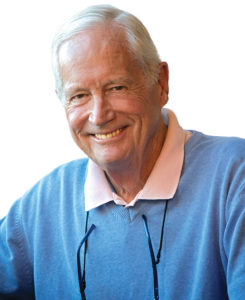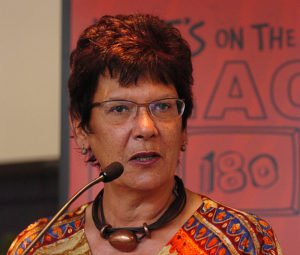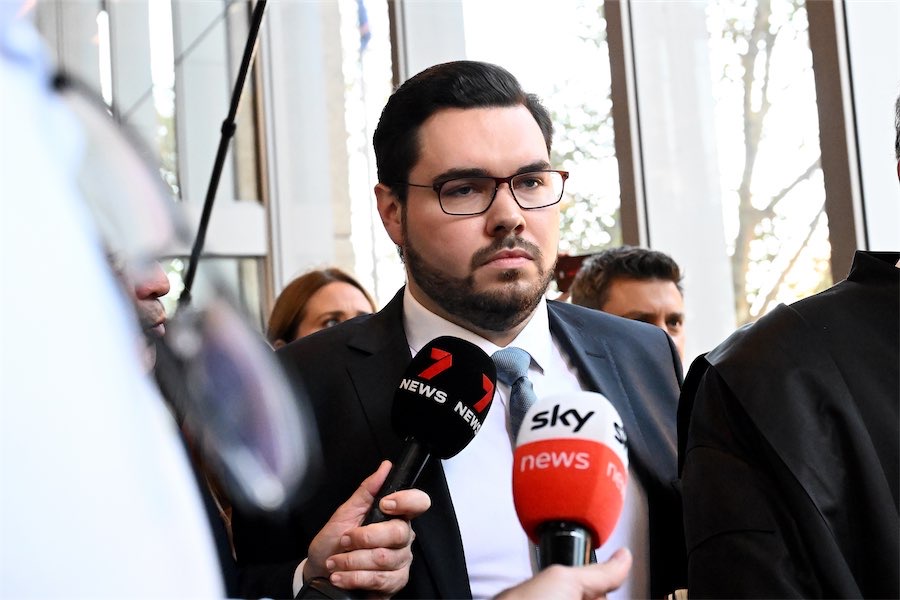WHEN the history of an eventual conciliation between Black and White Australia is written (or sung and danced), 2020 will provide some fascinating markers on that long, winding track, writes columnist ROBERT MACKLIN

First up will no doubt be the achievement of Pat Turner, the wonderful Gudanji-Arrernte woman who demanded the federal government seal off the outback Aboriginal communities from all potential COVID-19 carriers, thus preventing the deaths of hundreds if not thousands of our First Nations people.
Born in Alice Springs in 1952, Pat’s father died in a work accident when she was 11, but her mother – and great uncle Charles Perkins – saw that she received a good education in Adelaide.
She joined the APS and trained as a welfare officer; came to Canberra in 1978 where she rose through the ranks to become a deputy secretary of PM&C then CEO of the Aboriginal and Torres Strait Islander Commission.

She’s now the convenor of all the Aboriginal and Torres Strait Islander peak bodies and all Australia owes her a mighty debt.
Next there’s the nerve-tingling rendition of the National Anthem in the Eora language by the 16-year-old Wiradjuri lass Olivia Fox at the Rugby Union Test Match against the Argentinians.
It came as a total shock made even more moving as the Wallabies themselves – including some burly imports from the South Seas – were word perfect as they sang along.
That it came from the conservative rugby community made it all the more affecting. But like so many of the rough patches on that long and windy road, it was not without its critics.
The Eora (Dharug) language of Sydney and the immediate hinterland is only one of a great many Aboriginal languages including Wiradjuri’s own where a serious revival is taking place emanating from the Wagga Wagga education system.
Moreover, “Advance Australia Fair” still has its own detractors. As one cartoonist put it, the Aboriginal version would have arrived much earlier if only we’d been able to translate “girt”.
Finally came the launch earlier this month of a new book, “Songlines – The Power and the Promise”, by Margo Neale and Lynne Kelly, at the National Museum of Australia.
Margo is an Aboriginal woman of the Kulin/Gumbayngirr nations who, like so many of her generation, was “protected” by her mother and grandmother from any real knowledge of her ancestry. Trained as a teacher, she embarked on her journey of personal discovery when, with husband Bruce, she taught in Aboriginal communities of the NT.
Since then her career has skyrocketed in the National Museum of Australia where she worked with founding director Dawn Casey to develop its First Nations Gallery and has since curated a series of top-flight exhibitions from Emily Kngwarreye paintings to the magnificent “Seven Sisters Songline”.
Lynne Kelly is a polymath specialising in oral memory and mnemonics, and together they celebrate the concept of songlines carrying the vast accumulated knowledge of Aboriginal “dreamings” throughout the country. Already the book has been short-listed in the Victorian Premier’s Literary Awards.
It is the first of a series that will develop the concept to include “Design” by Alison Page and Paul Memmott and “Country” by Bill Gammage and Bruce Pascoe.
All three markers say much about the power and promise of the way ahead, especially in light of the results of whitefella obsessions with boundless “growth” and profligate “development” on that long, winding track.
Who can be trusted?
In a world of spin and confusion, there’s never been a more important time to support independent journalism in Canberra.
If you trust our work online and want to enforce the power of independent voices, I invite you to make a small contribution.
Every dollar of support is invested back into our journalism to help keep citynews.com.au strong and free.
Thank you,
Ian Meikle, editor




Leave a Reply